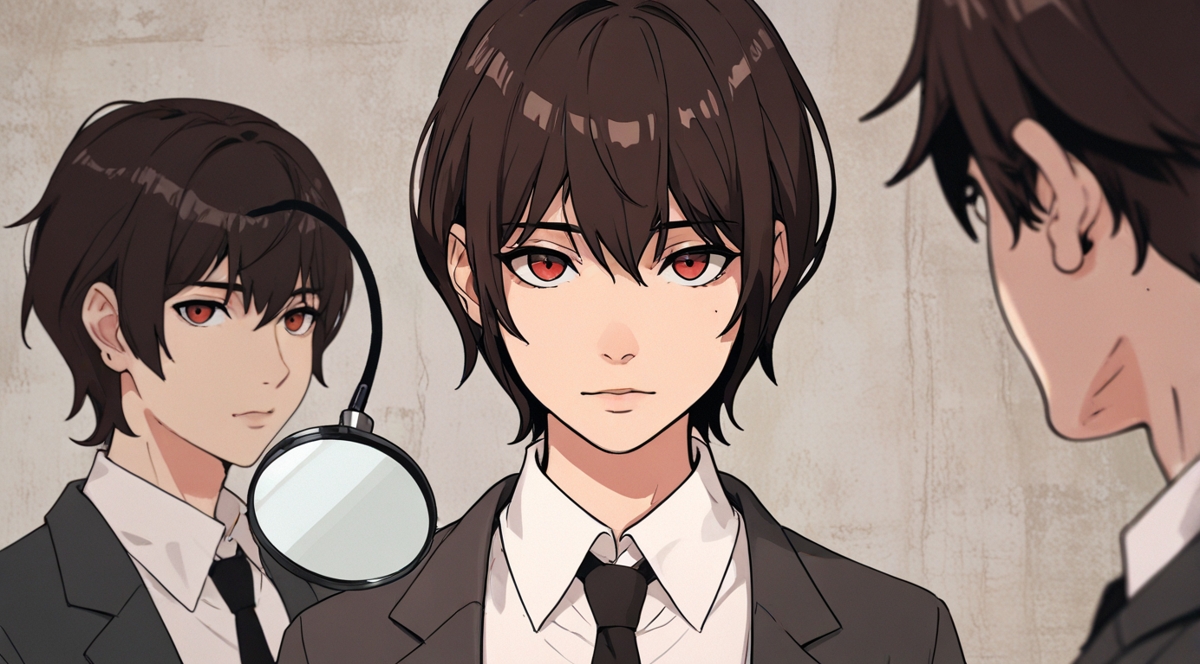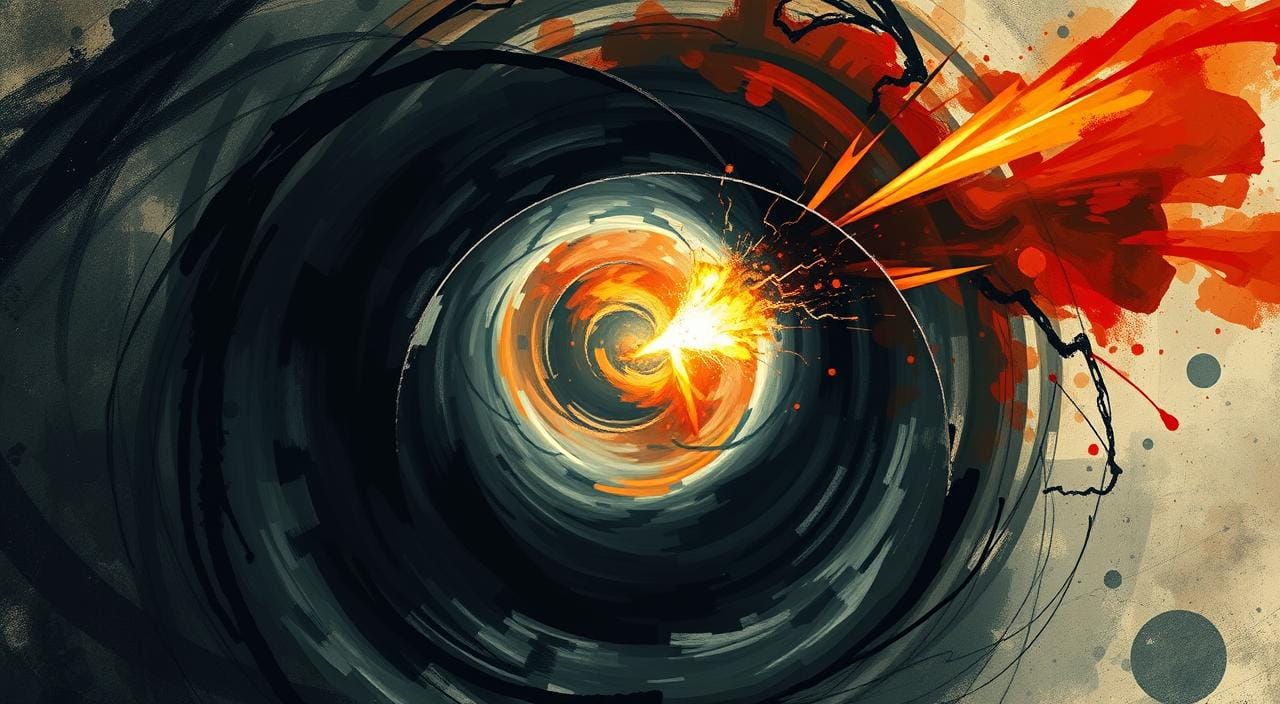Ever felt guilty for no reason? You might have been manipulated by a narcissist. Narcissists use guilt to control and dominate others. They shift blame, downplay your feelings, and make you feel guilty for their actions1. Learn Why Narcissists like to make you feel guilty?
Covert or vulnerable narcissists are experts at playing the victim. They use subtle emotional tricks to keep power over their loved ones2. They might seem charming but hide a deep need for admiration and lack empathy2.
Key Takeaways
- Narcissists don’t truly feel guilt and use it to manipulate others.
- Covert narcissists are great at playing the victim to control.
- Narcissists use tactics like blame-shifting to make you feel guilty for their actions.
- Victims of narcissistic abuse often feel the need to improve themselves and feel inadequate.
- Knowing how narcissists emotionally manipulate is key to escaping their control.
The Covert Narcissist’s Guilt Trip
Covert or vulnerable narcissists act differently. They don’t show off like others do. Instead, they seek admiration by appearing helpless and always in crisis3. They spread negativity and make others feel guilty to control them4.
They hide their ego in a victim-like package. This way, they blame and shame others to avoid being held accountable4. In this article you are going to learn why narcissists like to make you feel guilty.
Untangling the complex ways in which a narcissist plays the victim
Covert narcissists use guilt to keep power over others5. They pretend to be selfless but really use people for their gain5. This guilt can make them feel bad about themselves and even harm their own success5.
They often spy on others, ruin their joy, and force them to do what they want. They play the victim to excuse their wrongdoings5.
They control money, avoid blame, isolate people, and don’t care about others’ feelings. This makes it hard for people to leave them5.
Research shows narcissists often argue a lot in relationships3. They don’t solve problems well either3. They use gaslighting to make people doubt themselves3.
They also isolate people to control them better3.
“Covert narcissists simultaneously play the victim while using guilt trips as a manipulation tactic.”4
Healthy criticism is good, but narcissists always find fault. They never take blame for their actions3.
The Narcissism Exposed newsletter helps understand and deal with covert narcissism345.
Manipulative Tactics: How Narcissists Use Guilt
Narcissists use many ways to make people feel guilty. One common method is guilt-tripping, a way to control and manipulate6. They make their victims feel guilty for their problems, leading to feelings of doubt, low self-esteem, and depression6.
Another tactic is blame-shifting. They twist things to seem like victims, blaming others for their actions7. This is part of their abuse, along with emotional exploitation and gaslighting7.
Narcissists also use emotional blackmail. They make their partners feel responsible for their emotions, ignoring their own feelings7. This creates a cycle of abuse, with escalating harm7.
- Knowing the signs of narcissistic guilt-tripping and narcissistic manipulation helps protect oneself6.
- Setting clear boundaries and being assertive can stop guilt-tripping and emotional blackmail6.
- Seeking help from a therapist is key if guilt and shame last, helping to regain self-worth6.
Understanding narcissistic guilt-tripping and other tactics helps protect emotional well-being and build better relationships7. Taking care of oneself and having a supportive network is key to overcoming abuse7.
| Tactic | Description | Impact |
|---|---|---|
| Guilt-tripping | Narcissists make their partners feel responsible for their problems or shortcomings. | Feelings of self-doubt, low self-esteem, and depression. |
| Blame-shifting | Narcissists twist situations to portray themselves as the victim, shifting blame onto their partners. | Emotional exploitation, gaslighting, and lack of empathy in narcissistic abuse. |
| Emotional Blackmail | Narcissists make their partners responsible for their emotional states, dismissing or minimizing their partners’ feelings. | Tension-building, abusive incidents, and temporary reconciliation attempts in the narcissistic abuse cycle. |
“Narcissists use guilt as a tool to maintain power and control in relationships. Recognizing these tactics is crucial for setting boundaries and protecting one’s emotional well-being.”
Prioritizing Self-Care and Support
Understanding narcissistic guilt-tripping and other tactics helps protect emotional well-being and build better relationships. Taking care of oneself and having a supportive network is key to overcoming abuse7.
Why Narcissists Like to Make You Feel Guilty
Narcissists have a narcissistic need for control. They use guilt to manipulate and punish others. By making people feel ashamed and worthless, they keep themselves feeling superior and avoid blame8.
Studies show that narcissists often don’t feel guilty about their actions. A 2018 study found that those with “grandiose” narcissism and “vulnerable” narcissism tend to avoid guilt8. This lack of empathy and avoidance of accountability is a key trait of narcissists.
- Narcissists use guilt to emotional manipulate, making others blame themselves instead of them.
- By making others feel ashamed, narcissists can assert their need for control and avoid facing their own flaws.
- This behavior comes from their fragile self-esteem and need to elevate themselves over others.
Narcissists often lack empathy and can’t see things from others’ perspectives9. This makes it easy for them to use guilt to protect their ego, without thinking about how it affects others.
“Narcissists use guilt as a powerful tool to maintain control and avoid accountability for their actions. By making others feel ashamed and responsible, they can preserve their own sense of superiority and avoid confronting their own flaws.”
Knowing why narcissists use guilt can help you deal with their tactics. It can also help you reclaim your sense of self-worth89.

The Transactional Nature of Narcissistic Relationships
Narcissistic relationships often feel like a business deal. The narcissist sees their partner as a tool, not for love. Narcissists can’t truly feel for others and will dump their partners if they’re no longer useful10. This leads to a cycle of abuse and control.
Narcissists’ Shallow Attachment and Lack of Empathy
Narcissists use tricks and lies to feel important10. They give praise and attention only when it suits them, keeping their power10. They pretend to be weak to make others feel needed, creating guilt10.
They promise safety to keep people close, making them dependent10. This way, they get what they want from others10.
Narcissists see relationships as a way to get more than they give10. They use gifts to control others, making them feel guilty10. They struggle with giving and receiving praise, making things confusing and manipulative10.
Narcissism can come from childhood trauma or abuse11. They feel superior and entitled, treating others poorly11. They have fragile egos and see disagreement as a threat11.
Narcissists are masters of manipulation, using tactics like gaslighting and guilt11. They isolate people to control them11. It’s hard to manage expectations with a narcissist, as they resist change11.
Narcissists put their needs first, using people without caring about their feelings11. It’s important to set boundaries with them to stay healthy11. Choosing your battles wisely can help avoid emotional stress11.

“Narcissists view their interactions as transactional, feeling entitled to receive more than they give.”
Conclusion
Recognizing narcissists’ manipulative tactics is the first step to freedom from their guilt trips and emotional abuse12. By refusing to feel their guilt and shame, and setting clear boundaries, we regain our self-worth. This breaks the cycle of codependency and control13.
Narcissists often struggle with guilt and shame, making it crucial for us not to take on these feelings13. Healing from narcissistic abuse requires support and healthy, empathetic people around us14. Despite their initial charm, narcissists’ lack of empathy and self-centeredness can’t sustain long-term relationships.
By recognizing abuse patterns, setting boundaries, and focusing on our well-being, we can take back our lives12. This journey is challenging but possible with self-care, healthy boundaries, and support. It may mean standing up against their tactics, like calling us “overly sensitive” or selfish for setting boundaries. But staying true to ourselves can free us from guilt and shame, leading to authentic, fulfilling lives.
FAQ
Why do narcissists like to make you feel guilty?
How do covert or vulnerable narcissists use guilt to their advantage?
What tactics do narcissists use to make their victims feel guilty?
Why do narcissists like to make their victims feel guilty?
What is the nature of a narcissistic relationship?
Source Links
- Guilt Manipulation: A Powerful Tool of Covert Narcissists – Universally Us – https://universallyus.com/2019/10/04/guilt-manipulation-a-powerful-tool-of-covert-narcissists/
- Narcissistic People Love Guilt. Here’s How They Use It Against You. – https://medium.com/practical-growth/narcissistic-people-love-guilt-heres-how-they-use-it-against-you-3c4c6770f7a1
- 9 red flags you’re in a relationship with a covert narcissist – https://geediting.com/red-flags-youre-in-a-relationship-with-a-covert-narcissist/
- How to Break Free from a Covert Narcissist – https://www.selfloverecovery.com/blogs/blog/guilt-management?srsltid=AfmBOooWZOxogRNppBtgf_E-Sny8LF4hPrIetctdaGDG-YmltmW-K2eX
- Toxic guilt and the covert vulnerable narcissist | Art Florentyna Coaching – https://artflorentyna.com/toxic-guilt-and-the-covert-vulnerable-narcissist/
- Guilt-Tripping: Understanding the Manipulative Tactic – https://mark-havens.medium.com/guilt-tripping-understanding-the-manipulative-tactic-faf42279c29d
- Things Narcissists Say | Charlie Health – https://www.charliehealth.com/post/things-narcissists-say-in-an-argument-and-what-they-really-mean
- Do Narcissists Cry—And If So, Is It Legit? – https://www.verywellmind.com/do-narcissists-cry-or-feel-guilt-and-remorse-7566239
- Do Narcissists Feel Guilt or Shame? – https://www.linkedin.com/pulse/do-narcissists-feel-guilt-shame-kamini-wood-xjbzc
- The Narcissist’s Shell Game – https://www.psychologytoday.com/us/blog/narcissism-demystified/202403/the-narcissists-shell-game
- 8 Essential Strategies To Survive A Narcissist – https://mindwellnyc.com/survive-a-narcissist/
- Why You Feel Guilty For Setting Boundaries – https://www.shaneenmegji.com/blog/why-you-feel-guilty-for-setting-boundaries-6-lies-the-narcissist-uses-to-blame-you-for-your-needs
- Guilt and Proneness to Shame: Unethical Behaviour in Vulnerable and Grandiose Narcissism – https://www.ncbi.nlm.nih.gov/pmc/articles/PMC5973515/
- Do Narcissists Cry, Regret, Love & Apologize? – Calmerry – https://calmerry.com/blog/emotions/do-narcissists-cry-feel-guilty-regret-love-and-apologize/







